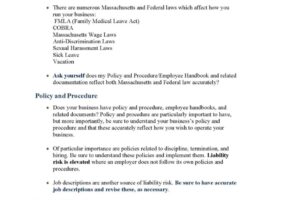
Wrong. There are four main pitfalls which LLC members and manager must be aware of:
1. Piercing the Corporate Veil
2. A Members Own Negligence
3. Violating the Operating Agreement
4. Failure to Pay Promised Contributions
1. Piercing the Corporate Veil
In the 1968 decision in the case of My Bread Baking Co. v. Cumberland Farms Inc, and echoed in many recent cases, the personal assets of members of an LLC or corporation in Massachusetts may become accessible to the court (‘piercing of the corporate veil’) when the same person or persons actively and pervasively control related businesses and some sort of fraud or damage occurs as a result; also, when a confused intermingling of two or more entities engaged in a common enterprise.
The My Bread Baking Company decision morphed, through later federal decisions and was later adopted by Massachusetts in the Evans v. Multicon Construction case. This case incorporated the federal 12 factor test for piercing the corporate veil and held that, where “overall structure and operation misleads” after examining all of the 12 factors outlined below, the corporate veil should be pierced.
The 12 Factor Test (from the Pepsi-Cola Metropolitan Bottling Co., v. Checkers, Inc., 1985 case)
1. is there common ownership of related entities
2. evidence of pervasive control of those entities
3. confused intermingling of business activity assets, or management
4. thin capitalization
5. nonobservance of corporate formalities
6. an absence of corporate records
7. no payment of dividends
8. siphoning of corporate assets by dominant shareholders
9. insolvency at the time of the litigated transaction
10. nonfunctioning of officers and directors
11. using the corporation for transactions of the dominant shareholders
12. using the corporation to promote fraud
What does this all mean for your LLC? The fact is that your LLC does not function as a perfect force field protecting the members and managers from all liability. If you operate multiple businesses, control those businesses substantially, and use the funds or human resources of those businesses interchangeably, this could add up to your force field being knocked down. What is the solution? Obtain the advice of a business attorney who can review your business practices to ensure that the business is not heading down a road that could lead to disaster.
2. A Members Own Negligence or Tortious Act
When a member of the LLC is negligent or commits some other tort the act is generally not protected by the liability shield generally enjoyed by members of an LLC. This, because, as a general rule a person cannot escape their own negligence. As a practical matter, not escaping your own negligence means, for example, that if you are a member of an LLC and you commit a battery to a customer of the company that is not a criminal battery, you will be liable for that behavior.
However, if activity that the LLC member is engaged in is on the behalf of the LLC it is possible that the member may not be liable for the activity. In order for the member of the LLC to be shielded, though, the operating agreement must clearly limit duties owed to other members of the LLC. Failure of the operating agreement to effectively limit liability in the aforementioned manner may result in the LLC member being personally liable as a result of an action – even if that action is on the LLC’s behalf.
3. Violating the Operating Agreement
Another clear exception to the normal liability protection that LLC members and managers enjoy occurs when a member of an LLC distributes money or other property in violation of provisions of the operating agreement. Here, that member could be personally liable for any such violation. Additionally, members that vote for money or property to be distributed to another party or parties in violation of the operating agreement can also be personally liable for any resulting damages.
4. Failure to Pay Promised Contributions
LLC liability protection also disappears for the member who has promised to contribute a specific sum of money or property to the LLC but does not deliver on that promise. In the event a member does not follow through with a promise of a contribution to the LLC, that member may be liable personally for this failure to deliver.
The Bottom Line
There is no need to take unnecessary risks as a manager or member of an LLC. It is good practice to keep funds of more than one business operation in separate bank accounts. It is also good business practice to not move funds from the operating account of one business to the other business. While a loan may be possible from business to business, when making a loan between businesses owned by the same owner it is imperative that certain formalities be followed; namely, the issuance of a promissory note where a reasonable interest rate and payment schedule exists, and a demonstrable record of timely payments made on the account.
Also, corporate formalities must be followed. If the operating agreement for your LLC indicates that members meetings are held annually, hold those meetings. Also, at those annual meetings include some detail about actions taken by the business. It is also essential to have real, functioning members of the LLC to avoid any perception that the members of the LLC are actually nonfunctioning members.
Clearly there is a lot of aspects to preserving the liability that LLC’s enjoy in Massachusetts. Consult with an experienced business or corporate law attorney to get the best possible assessment of your specific situation, and to learn methods to preserve your liability protection.
DISCLAIMER:
The information provided in the pages and posts of this website are for general informational purposes only. The information presented on this site is not legal advice, and no attorney-client relationship is formed by the use of this site.



